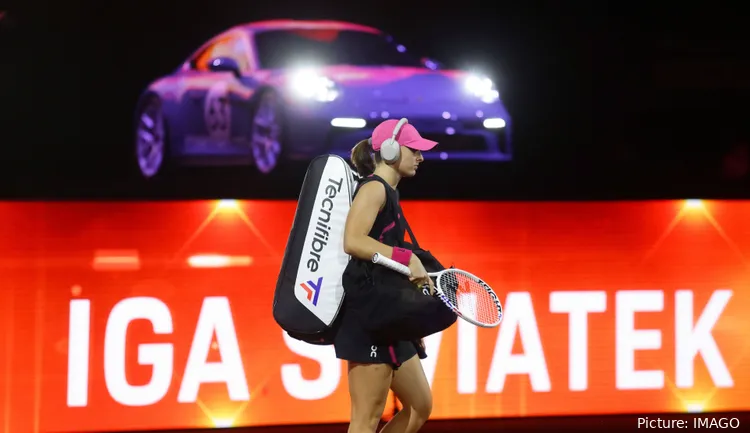It’s understandable that Iga Swiatek’s performances can vary, showcasing moments of sublime brilliance alongside occasional setbacks. Despite these fluctuations, her coach, Tomasz Wiktorowski, seems content with how the season is progressing. While acknowledging some weaker moments, he remains optimistic about Swiatek’s overall trajectory and potential for growth. Such a balanced perspective reflects a coach who understands the ups and downs inherent in professional tennis and is committed to supporting his player through the highs and lows of the season.
Tomasz Wiktorowski’s assessment of Iga Swiatek’s performances highlights specific tournaments where she faced challenges, such as Dubai and Miami, where losses to Anna Kalinskaya and Ekaterina Alexandrova occurred. However, he doesn’t classify losses to Linda Noskova at the Australian Open or Elena Rybakina in Stuttgart in the same category. This nuanced approach suggests that Wiktorowski recognizes the complexities of performance evaluation and considers various factors when assessing Swiatek’s results.Additionally, Wiktorowski’s emphasis on the rankings race as a better indicator of current form reflects a pragmatic approach to evaluating Swiatek’s progress. By focusing on rankings, which consider recent performances and overall consistency, he gains insight into Swiatek’s standing relative to her peers and her trajectory throughout the season. This approach allows for a more comprehensive analysis of Swiatek’s performance and helps inform future training and competition strategies.
Tomasz Wiktorowski’s assessment of Iga Swiatek’s recent performances provides valuable insight into their coaching perspective. He highlights the United Cup as a positive achievement, noting Swiatek’s success in winning five singles matches against strong opponents within the WTA 500 event. However, he acknowledges two weaker moments in Dubai and Miami, where Swiatek faced challenges.
This balanced approach underscores Wiktorowski’s focus on both strengths and areas for improvement in Swiatek’s game. By recognizing both the successes and setbacks, they can work together to address any weaknesses and build upon their strengths movingforward. Such a thoughtful analysis demonstrates a commitment to continuous improvement and strategic planning in Swiatek’s career development.
Tomasz Wiktorowski’s assessment of Iga Swiatek’s performance at the Australian Open demonstrates his objectivity as a coach. While acknowledging that it wasn’t Swiatek’s best performance, he also gives credit to her opponent for playing a very good match. This balanced perspective reflects a coach who values honesty and fairness in evaluating their player’s performances. By recognizing the strengths of the opponent and acknowledging areas for improvement, Wiktorowski creates a constructive environment for Swiatek’s development, focusing on learning and growth rather than dwelling on setbacks.
Tomasz Wiktorowski’s analysis provides valuable insights into his coaching approach and perspective on Iga Swiatek’s performances. He acknowledges Linda Noskova’s capability and highlights her strong showing in Melbourne, indicating that the loss was not solely attributable to Swiatek’s performance. However, he identifies the matches in Miami and Dubai as weaker moments for Swiatek.Despite these setbacks, Wiktorowski maintains satisfaction with Swiatek’s overall performance, citing numerous wins and high-quality matches throughout the season. His emphasis on assessing performance through rankings underscores the importance of a broader perspective, considering both individual match outcomes and overall consistency in determining Swiatek’s progress and level of play. This holistic approach reflects a coach who values both short-term results and long-term development in guiding his player’s career.
